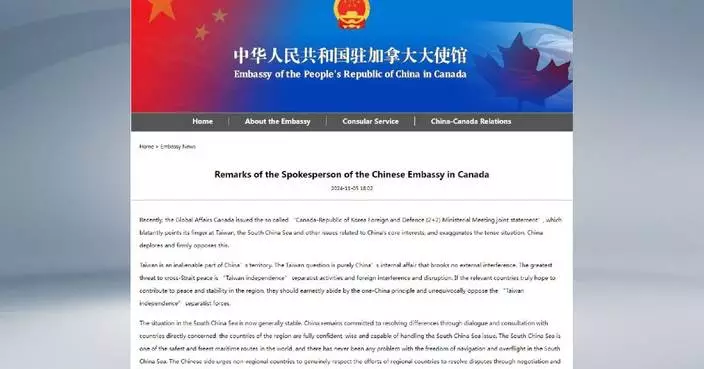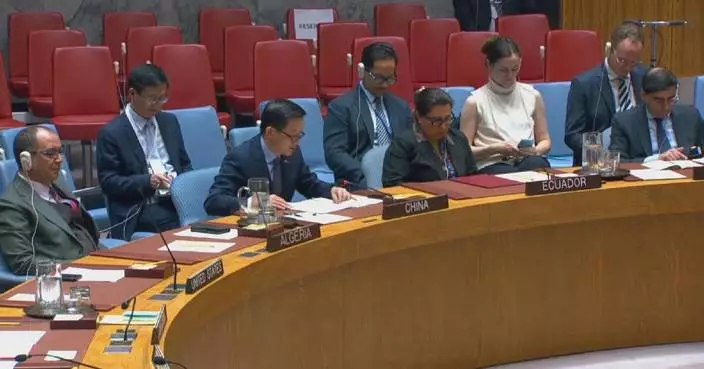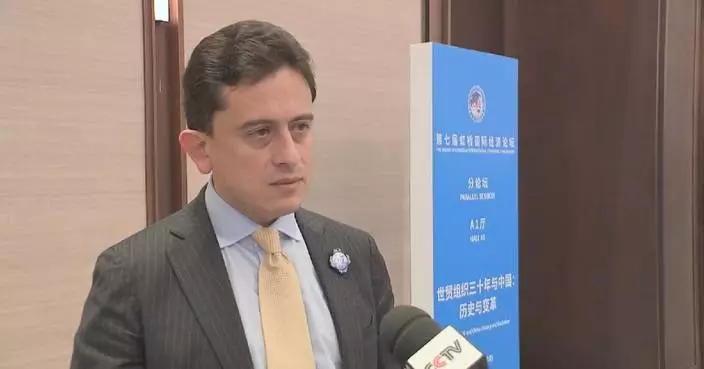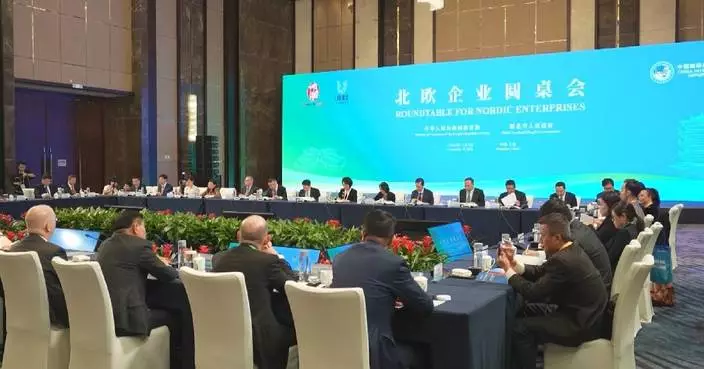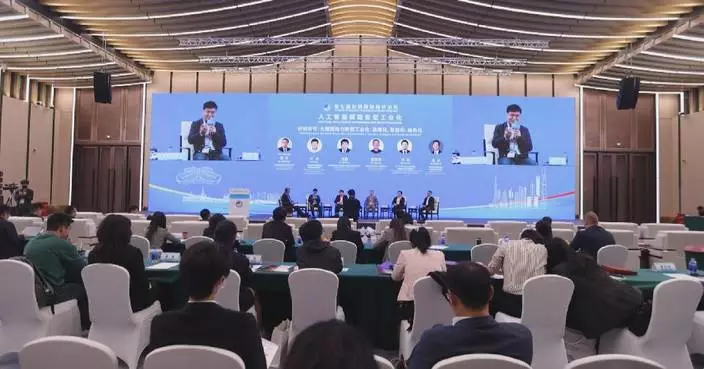A mind-blowing lineup of six guests of honor, namely, Malaysia, France, Nicaragua, Saudi Arabia, Tanzania, and Uzbekistan, on Tuesday opened their distinctive pavilions at the country exhibition of the ongoing seventh China International Import Expo (CIIE) in Shanghai. Malaysian Prime Minister Anwar Ibrahim attended the opening ceremony of the 252-square-meter Malaysian pavilion where 16 exhibitors brought a variety of exhibits including fruits, edible bird's nests, clothing, and manned aircraft.
Unlike the previous years, this time Malaysia's exhibits focus on professional services, electrical and electronics, oil and gas, information and communication technology.
Meanwhile, the France pavilion displays exhibits from 19 companies covering different fields from articles of luxury, consumer goods, food and beverage, healthcare and industry.
The Nicaragua booth consists of multiple themed areas such as cultural displays, tourism highlights, export commodities and national economic potential, allowing people to experience Nicaragua's unique customs and culture in an immersive way.
Tanzania showcased leather goods, wood carvings, oil paintings, and agricultural products, including honey which is a new product added to the export agreement recently signed with China.
"This time the company participating in the CIIE is increasing. We have 39 companies from Tanzania this time, so we display several projects. We display agricultural projects, we display minings, we display projects of our government," said Latifa M. Khamis, director general of the Tanzania Trade Development Authority.
The CIIE is the world's first national-level exhibition dedicated to imports. Running from Nov 5 to 10 under the theme of "New Era, Shared Future," the seventh CIIE has attracted participants from 152 countries, regions and international organizations to participate in its country exhibition and business exhibition.
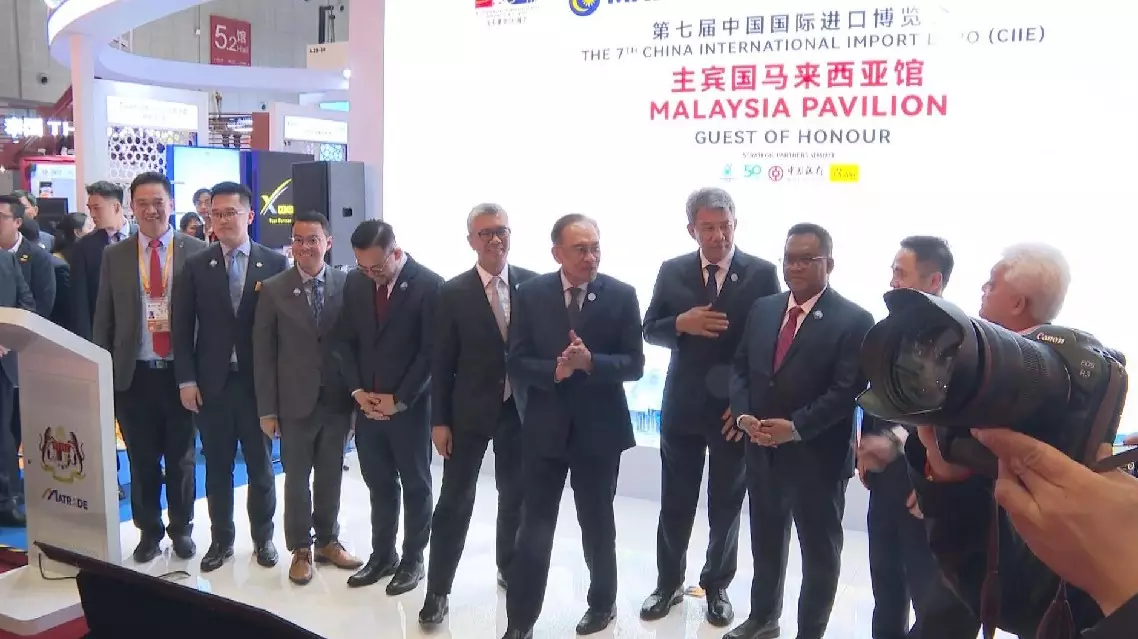
Guest countries of honor showcase their strengths at ongoing 7th CIIE
The development and application of new-type energy storage methods for green energy reform was highlighted at a sub-meeting of the seventh Hongqiao International Economic Forum in Shanghai, with experts noting China's leading role.
As an important part of the China International Import Expo (CIIE), this year's Hongqiao Forum held 19 sub-forums at Shanghai's National Exhibition and Convention Center on Tuesday, including an energy meeting titled "New Energy Storage Driving Future Energy Transformation".
Taking on a historical perspective, attendees said that all previous industrial revolutions were closely linked to energy revolutions, and now, the development of the intelligent era based on AI powers relies on computing power, which relies heavily on energy for its development.
According to scholars at the meeting, the world agrees that new energy storage has broad development prospects, and the iterative progress of energy storage technology will effectively promote the open sharing of energy production and consumption and realize multi-energy synergy -- the integration and coordinated use of multiple energy sources.
"A global consensus was reached at the COP28 world climate conference last year that we will gradually transition away from fossil energy. In the future, we will move towards the goal of carbon neutrality, as well as the green transformation of energy, and energy storage is also indispensable," said Huang Zhen, an academician of the Chinese Academy of Engineering (CAE).
Faced with the challenges and opportunities of emergent power technology, China has taken the global lead in this sector and continues to explore more energy storage methods.
In late 2022, a 100 MW flow battery energy storage peak-shaving power station was put into operation in northeast China's coastal city of Dalian. In April this year, the world's first 300 MW compressed air energy storage station in Yingcheng City, central China's Hubei Province, started operation.
Meanwhile, China has also started megawatt-class flywheel energy storage projects in parts of the country and is accelerating the construction of demonstration zones for gravity energy storage and liquid air energy storage methods.
"China has taken the global lead on investing in renewables for the start. In 2023, 44 percent of the world's investments of renewables have come from the Chinese market, which is a very, very important figure, and it's more than double of what you see in the West. So I think that kind of figure is important," said Hazem Ben-Gacem, a member of the Executive Board of the Harvard University Kennedy School of Government.
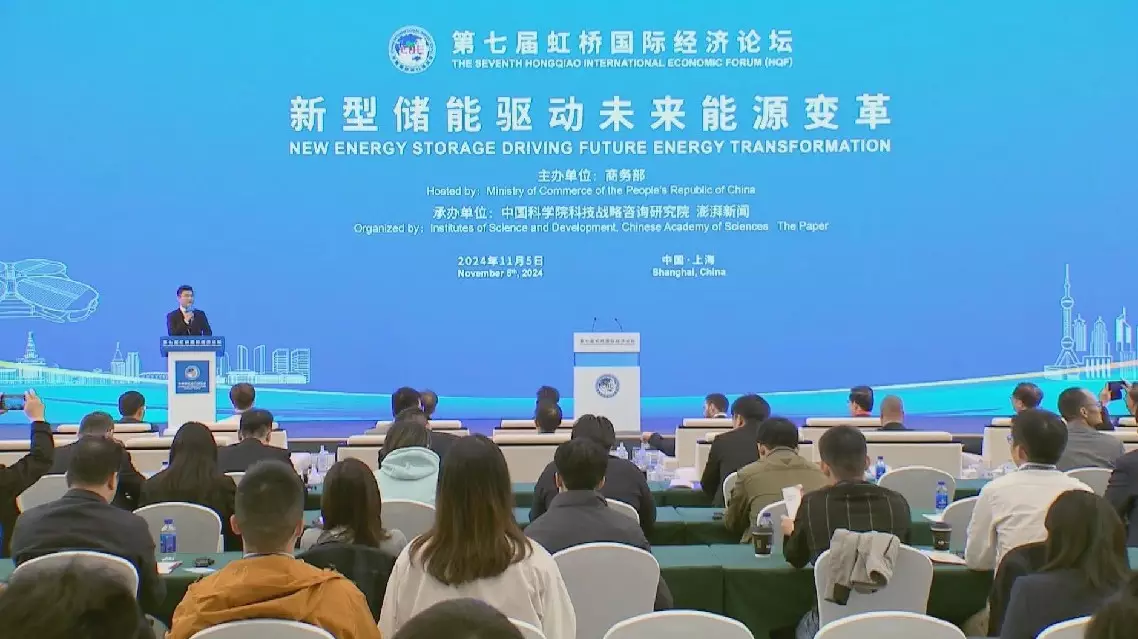
Hongqiao Forum sub-meeting highlights new-type energy storage for future energy reform




